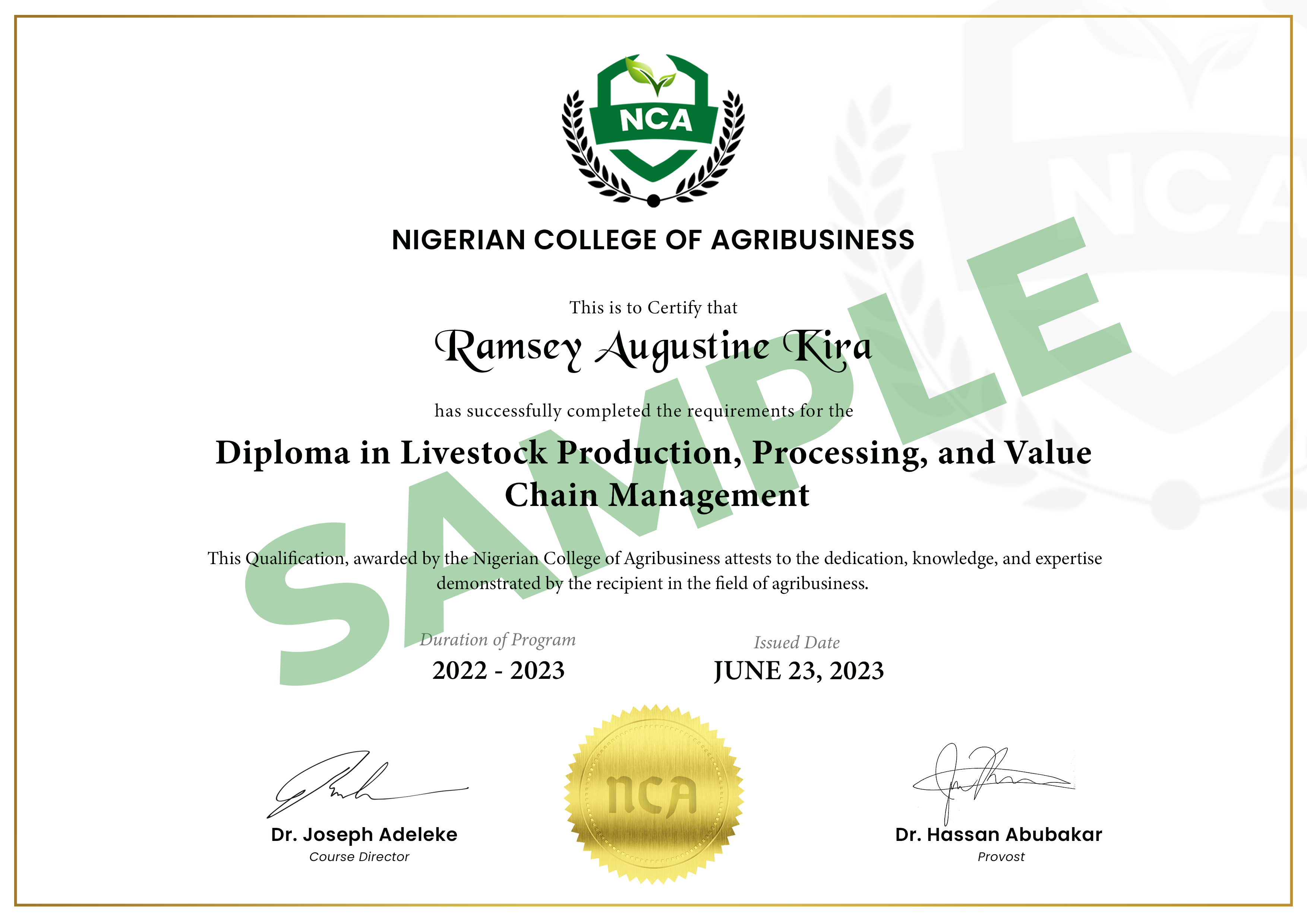
Development leaders play a pivotal role in shaping the future of societies and organizations. The Diploma in Development Leadership is a dynamic program designed to equip aspiring and current leaders with the knowledge, skills, and vision to drive meaningful change and progress in the field of development. This comprehensive diploma program covers leadership theory, strategic planning, stakeholder engagement, and the practical tools needed to lead and manage successful development projects and initiatives.
This program is designed for:
Upon successful completion of the program, participants will earn a prestigious Diploma in Development Leadership from the Nigerian College of Agribusiness. At convocation, graduating students will receive their Diploma as well as their Transcript of academic records.
Faculty members are experienced development leaders with extensive experience working and managing projects in the development sectors across Africa.
NGN 250,000
April/May 2024 Stream

Click on the link below to fill the application form for this course
Do you need any further assistance regarding this program, send an email to: [email protected] or chat with a program executive on WhatsApp via: 09023789104 (Nigeria)
Ready to Begin your application process? Click on “Apply Now” to access the application form.
Established in 2022 and approved by the National Board for Technical Education (NBTE), the College provides high-quality specialized education that strives to improve the productivity, performance and continuous development of professionals in Nigeria. The College has the Centre for Environment and Climate Innovation, Centre for Agribusiness Enterprise, Centre for Centre for Nutrition and Wellness, Centre for Development Leadership, Centre for Farm Management and Centre for Food Business Innovation. Through these centers, the college delivers need-based professional education to diverse professionals across the country and beyond. In 2023, the Nigerian College of Agribusiness was admitted into E4Impact Alliance, a network of leading business schools in Africa helping startups in Africa to scale up and attain their full potentials. Other members of E4Impact Alliance include University of Professional Studies Accra, University of Makeni Sierra-Leone and Uganda Martyrs University Kampala.

Our mission is to cultivate a vibrant, sustainable and profitable agribusiness sector that drives economic growth and social progress across Africa and beyond.
We are committed towards educating a new generation of agribusiness sector leaders that will transform the economic fortunes of the African continent
© NCAEDU 2023 All Rights Reserved.